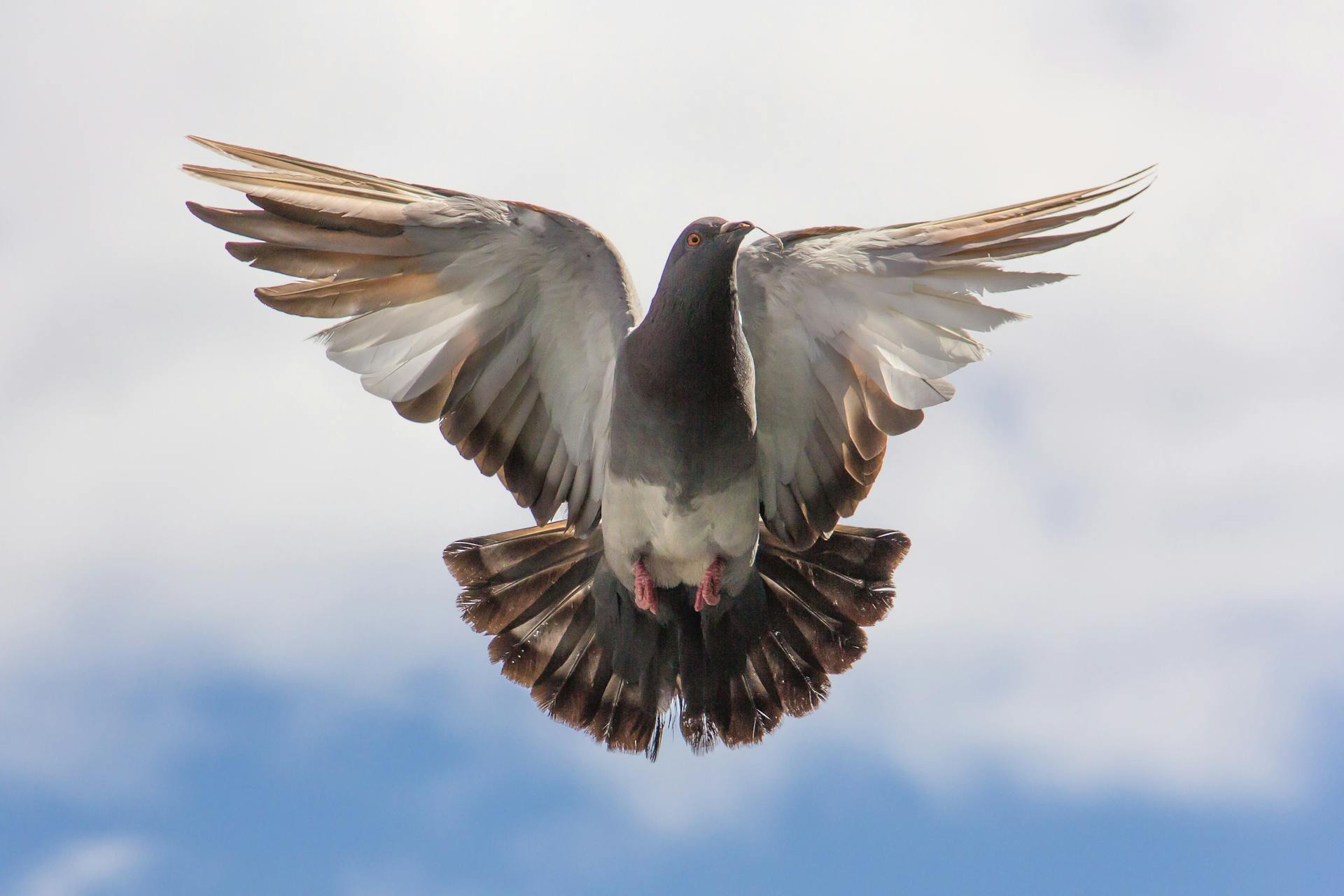
Pigeon fever, also known as Dryland DistEMPER, is an infectious bacterial disease of horses. It is caused by the bacteria Corynebacterium pseudotuberculosis, which lives in soil and can be airborne. Signs of pigeon fever include swelling around the chest (the "pigeon" part of its name) or abscesses in other parts of the body.
Most commonly pigeons fever occurs when the bacteria are transmitted to horses through insect bites or contact with contaminated equipment or feed troughs. Other potential sources include contaminated drinking water and direct contact with any infected horses, including those that may be shed by their own skin cells.
If a horse shows signs of pigeon fever it is important to consult your veterinarian straight away for an official diagnosis and treatment plan. In mild cases a course of antibiotics may be sufficient, however hospitalization and more intensive protocols for severe presentations should not be overlooked as infective agents can spread rapidly via respiratory secretions if left untreated.
To assist in preventing outbreaks owners should regularly clean water sources around paddocks or pastures to ensure infection doesn't spread between horses on premise either directly through shared feed bins or indirectly through surrounding insects that could bring infected particles along with them while travelling from one animal to others around you property's boundaries.. As always best practice maintenance includes regular stable cleaning practices as well as proper disposal methods so that new animals entering the premises may remain safe from infection too!
Expand your knowledge: How to Stop a Dog from Pacing around the House?
How is pigeon fever in horses diagnosed?
Pigeon fever is a bacterial infection in horses caused by the Corynebacterium pseudotuberculosis bacteria. This bacterial infection can cause painful abscesses, or “pockets” of pus, to form beneath the skin of affected horses. Diagnosing pigeon fever in horses requires close monitoring and careful examination by a veterinarian.
The most common way for a veterinarian to diagnose pigeon fever in horses is through examining any swellings at the site of an abscess or other drained area. The presence of these lesions around the horse’s chest and abdomen are a primary indicator that the horse may be suffering from pigeon fever. The veterinary team will also take samples from any draining pus to test for signs of Corynebacterium pseudotuberculosis bacteria, as it will typically have an unpleasant odor that gives off what some refer to as a “dirty apple cider vinegar” smell if it is present
Other tests like blood work may also be done if necessary but are usually not required in order to diagnose pigeon fever since the physical appearance of lesions is usually all that's needed. Limiting exposure between an infected horse and other livestock on a property also helps greatly with prevention as these organisms cannot linger outside their hosts very long. Therefore, isolating sick animals helps prevent spread throughout herds quickly which could help protect more animals from infections like this one
Overall diagnosis for pigeon fever should always be conducted by trained professionals who can safely evaluate and inspect affected sites without risk to themselves or other livestock on your property.
For another approach, see: Dog Food Helps
How is pigeon fever in horses treated?
Pigeon Fever, also known as dryland distemper, is a contagious infection caused by the bacteria Corynebacterium pseudotuberculosis found in horses and other animals. This condition can be extremely serious when contracted by a horse and requires immediate medical attention. The good news is that prompt treatment can often result in a full recovery and prevention of long-term complications.
The first step in treating pigeon fever is to identify any possible sources of contamination such as bedding, stall or paddock surfaces or ideas on animal sources if the horse has had contact with an infected animal. Infected horses should be isolated away from unaffected animals until they recover to avoid spreading the infection further. It may also be necessary to do some environmental cleaning such as bleaching stall walls or replacing contaminated bedding materials to help stop additional spread of the disease.
Veterinarians will usually begin a course of antibiotics for treatment once the diagnosis has been made – usually tetracyclines such as oxytetracycline or doxycycline for five days up to three weeks depending on severity of symptoms and response to treatment. These should not be given together so rotations are recommended instead (one type today, another tomorrow). Additionally, antibiotics may need to be used along with other drugs like anti-inflammatories — this depends on how severely affected individual horse is showing signs of discomfort with stiff joints or swelling around injection sites where abscesses could form if untreated. Making sure your equine receives appropriate nutrition during this time also helps support their immune system while they are recovering from pigeon fever since poor diet can increase chance you’ll encounter secondary infections which may require even more medications before condition resolves completely!
Finally, don't forget about supportive care - it's important never administer any medications without first consulting your veterinarian who will provide recommendations for dosage amounts & administration directions depending on what type & stage disease has progressed too! Additionally providing hydrotherapy which helps reduce swelling may also help hasten recovery time when dealing with severe respiratory compromised patients along with removing all possible points entry diseases transmission through troughs/hoses etc...The last thing owners want after having antibiotics prescribed them would fail due inaccurate advice presentation protocols given without professional consultation beforehand!
Intriguing read: Cat Licks Flea Treatment
Is pigeon fever in horses contagious?
No, pigeon fever in horses is not contagious. Also known as “dryland distemper” or “bacterial pseudotyphlitis,” pigeon fever is an infection caused by the bacteria Corynebacterium pseudotuberculosis. This infection primarily affects horses and other equines, but it can occasionally occur in other animals. Pigeon fever does produce symptoms similar to those of a virus, making it appear more contagious than it actually is. While the bacteria that causes pigeon fever can be spread from horse to horse through direct contact with contaminated objects such as grooming supplies and tack, the disease itself cannot be passed from animal to animal.
The primary method of transmission for pigeon fever is through insect vectors such as certain species of flies or mosquitoes that spread the infection by carrying the bacteria from one host to another after drinking its blood meal — thus the name “pigeon” fever due to infected pigeons shared habitat with humans and other animals susceptible to this type of bacterial infection. This type of transmission also makes human cases very rare since flies do not typically feed on humans.
In most cases, preventing infections with Pigeon Fever involves reducing exposure or susceptibility by reducing humidity where possible (as this helps keep fly populations down) and avoiding areas known for housing large numbers of infected animals (where these exist). Additionally, thorough vaccinations are encouraged in order to reduce a population's exposure risk overall; if at least 70% percent are vaccinated then herd immunity will significantly reduce any chance of spreading infection within a group swiftly and effectively. In short – take precautions against fly populations (i-e using repellents) but no need for quarantining affected individuals as this form of bacterial illness cannot be transmitted person-to-person like many diseases often can be!
Intriguing read: Reduce Humidity
What can be done to prevent pigeon fever in horses?
Pigeon fever, also known as dryland distemper, is an emerging bacterial infection that affects horses. It is caused by the bacteria Corynebacterium pseudotuberculosis and can cause severe skin lesions, fever and other serious health problems. To help prevent the spread of pigeon fever in horses, it is important to take a number of steps to reduce the risk of infection.
The first step in preventing pigeon fever is to practice good hygiene when handling horses. Owners should use protective equipment such as disposeable gloves when handling or grooming their horse as well as washing their hands with soap and water before and after interacting with their horse. In addition, owners should avoid sharing grooming supplies such as brushes and combs between different animals or people to prevent cross-contamination of germs between them.
Another important step for owners to take in order to prevent pigeon fever is regularly inspecting any new animals that come onto a farm for signs of infection before introducing them into shared pastures or stables with other horses. If possible, try using an isolated area on the farm until all new arrivals can be checked for signs of disease before exposing other animals on the property if possible.
Vaccination against pigeon fever has also proven effective at reducing its spread amongst horses so owners should review their vaccination protocols periodically with a veterinarian to make sure each horse's vaccinations are up-to-date against this particular condition each year - like all infectious diseases vaccinated against - it depends on prior exposure in order that immunity might provide protection from future exposures (risk allowing).
Finally, it's important for owners to be proactive by seeking medical attention if they suspect any animal may have been exposed or infected with pigeon fever symptoms must never be ignored because this condition can have serious implications if left untreated including death so please always seek veterinary help right away if your suspicion looms large action must promptly follow after which proper disinfection should occur just following those removal procedures put forth by your vet; asked them how best you might go about implementing these without ever risking reoccurrence.. Last but not least exercise diligence toward protecting yourself from infections agents found anywhere both inside & out airborne agents quickly travel so limiting circumstances where humans & equines both interact together played safe follows close proximity rule thus proving some form(s) preventive guardianship giving due respect regulation does speak towards maintaining healthy conditions throughout environments which actin partnership amongst all whom inhabitant said spaces!
For another approach, see: Dog Owners
Are there any long-term side effects of pigeon fever in horses?
Pigeon fever, medically known as equine distemper, is an infectious disease that affects horses and other animals. It is spread by flying insects called “pigeons” and can cause severe inflammation and dehydration in a horse’s upper respiratory tract. Although the symptoms of pigeon fever can be unpleasant and uncomfortable for the horse, there don’t appear to be any long-term side effects from the disease.
Most horses develop an immune response to pigeon fever within one to two weeks and fully recover with no lasting aftereffects after treatment. In rare cases, some horses may develop more severe symptoms that may last for months or even years after infection, but these cases are very uncommon. There have not been any reports of significant long-term health issues linked to equine distemper in recent years.
Despite this good news, it is important for horse owners to remain vigilant when it comes to monitoring their animals for signs of this potentially dangerous illness. Early diagnosis and prompt treatment remain essential in minimizing the severity of pigeon fever's effects on a horse’s overall health. Seeking veterinary attention at the first sign of infection can also help prevent a potential outbreak or recurrence of symptoms among other animals in stables or enclosures containing infected animals. By following proper hygiene practices regularly and scheduling regular checkups with your veterinarian you will ensure your horse receives immediate diagnosis if they do happen to contract pigeon fever so that they can make a full recovery without any long lasting consequences or detrimental side effects
Explore further: Treat Milk Fever
Sources
- http://www.horsedvm.com/disease/pigeon-fever/
- http://equinevetob.com/pigeon-fever/
- https://horsemansnews.com/pigeon-fever-in-horses/
- https://www.cahosp.com/post/what-does-pigeon-fever-look-like-in-a-horse
- https://thehorse.com/18344/preventing-pigeon-fever/
- https://great-american-adventures.com/is-pigeon-fever-fatal-in-horses/
- https://atsutomo.jodymaroni.com/recipe/quick-answer-how-do-you-prevent-pigeon-fever-in-horses.html
- https://www.thevetexpert.com/pigeon-fever-in-horses-signs-diagnosis-treatment-and-control/
- https://todaysequine.net/pigeon-fever-in-horses/
- https://saladandsides.com/quick-answer-how-do-you-prevent-pigeon-fever-in-horses/
- https://www.heavenlygaitsequinemassage.com/pigeon-fever-texas-horses/
- https://equusmagazine.com/horse-world/6-pigeon-fever-54183/
Featured Images: pexels.com


